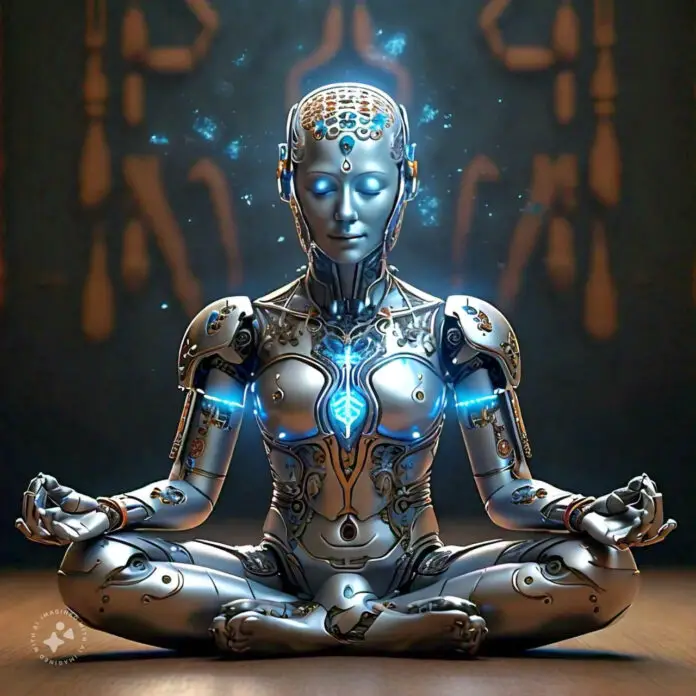Are you ready to elevate your meditation practice with cutting-edge technology? Imagine a personal mindfulness coach available 24/7, customized soundscapes that align with your brain activity, and real-time feedback on your mental state. Welcome to the future of mindfulness, where AI for meditation changes how people achieve inner peace and self-awareness through AI Apps.
In this article, we’ll explore seven groundbreaking ways artificial intelligence enhances meditation and how it’s revolutionizing the quest for calmness, focus, and mental well-being through Apps.
AI for Meditation: 7 Mind-Blowing Practice and Apps
Meditation has been practiced for thousands of years to improve mental and emotional well-being. However, today’s world of technology has brought a new dimension to this ancient practice. Thanks to AI for meditation, mindfulness is now more personalized, accessible, and effective than ever before. Whether you’re a beginner or a seasoned practitioner, AI is making it easier to achieve deeper states of relaxation and clarity.
Let’s dive into the seven incredible ways AI is transforming meditation and helping individuals enhance their mental wellness journey.
1. AI-Powered Guided Meditations: Your Personal Zen Master
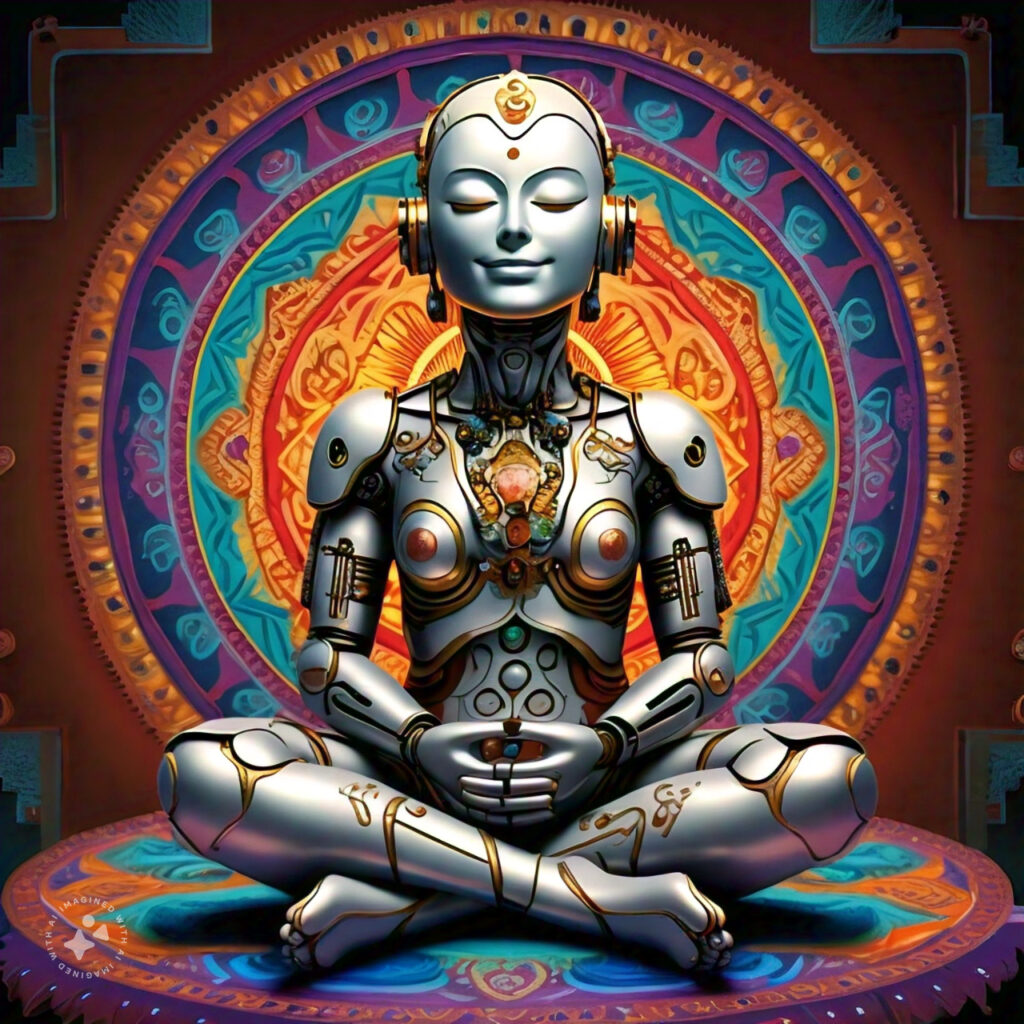
Gone are the days of generalized, one-size-fits-all meditation apps. With AI for meditation, you can now access personalized sessions designed to meet your specific needs. Advanced AI algorithms analyze your meditation history, stress levels, and even your current emotional state to create customized mindfulness experiences.
For example, apps like Headspace utilize machine learning to adapt their content based on your meditation habits and preferences. As you continue using the app, it refines its recommendations, ensuring you always have a session tailored to your evolving goals.
AI Apps for Meditation for Guided Meditations
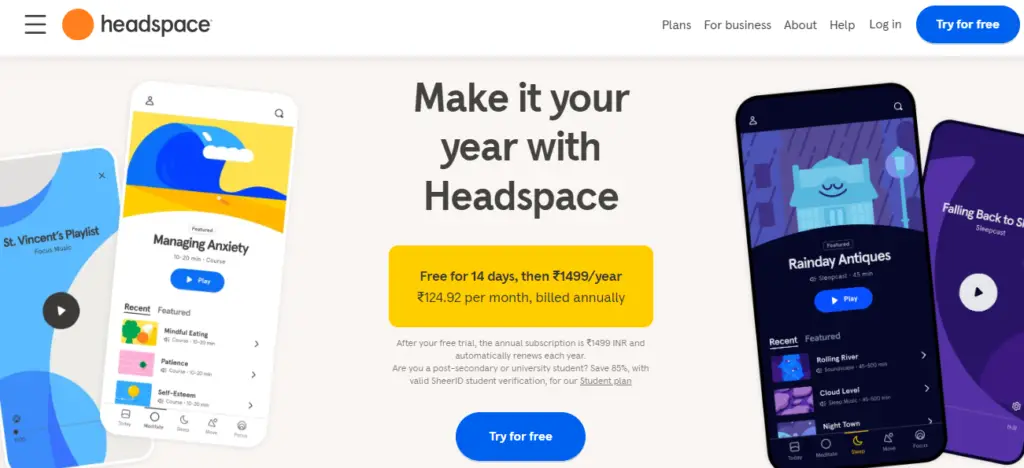
Headspace is a standout app in this category. Known for its approachable, AI-driven personalization, it uses machine learning to tailor guided meditation sessions based on your stress levels, moods, and meditation history. As you continue to use it, the app adjusts its recommendations to fit your evolving mental wellness needs, ensuring each session is just right for you.
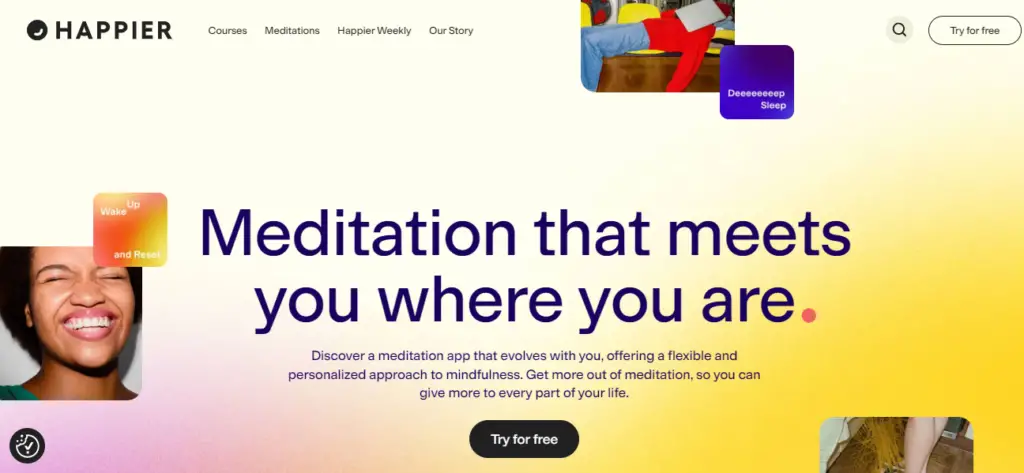
Ten Percent Happier also provides guided meditations with an emphasis on mental clarity and mindfulness. While not as AI-driven as some others, it utilizes data to adjust its content and guide you through personalized meditation journeys.
2. Real-Time Biofeedback: Meditation on Autopilot

One of the most exciting applications of AI in meditation is real-time biofeedback. Using devices like the Muse headband, AI monitors your brainwave patterns and vital signs while you meditate, offering instant feedback to improve your practice.
Muse uses electroencephalogram (EEG) sensors to track brain activity and respond with nature sounds that calm down as your mind settles. This AI-enhanced feedback loop helps you achieve deep relaxation quicker and guides you towards a more focused and effective meditation session.
AI Apps for Meditation on Autopilot
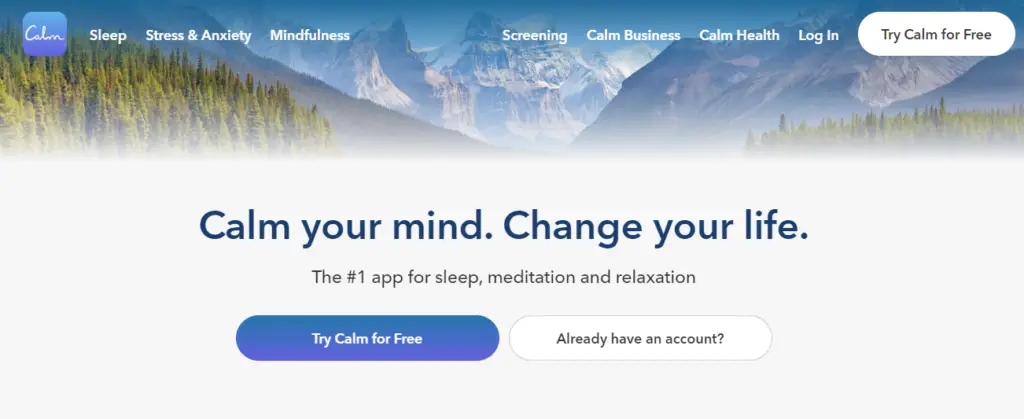
Calm integrates some biofeedback elements with features like sleep tracking and breathing exercises that adapt in real time to your responses. While Calm doesn’t include brainwave monitoring like other biofeedback tools, it uses AI algorithms to suggest meditation techniques based on your data inputs and feedback from previous sessions.
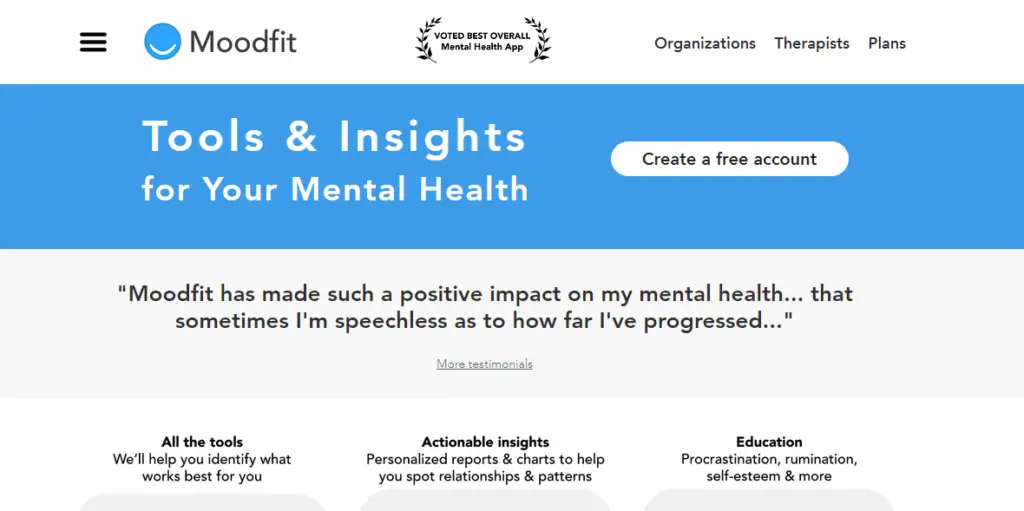
Moodfit focuses on biofeedback by offering a more holistic approach to mental health tracking, using AI to monitor your mood, fitness, and mental well-being. The AI helps you track the connection between physical activities and your mental state, suggesting the right meditation or breathing exercises.
3. AI-Generated Meditation Music: Tailored Soundscapes for Your Brain
Sound is a powerful tool in meditation, and now, AI is stepping in to create soundscapes that sync perfectly with your mental state. Platforms like Brain.fm use AI to compose music that induces specific brain states, optimizing your focus or relaxation depending on your meditation goals.
The music adapts in real time based on feedback from your brain activity, ensuring you’re always listening to tunes that help you achieve maximum mindfulness. This evolution of AI for meditation allows for endless personalization and deeper immersion in your practice.
AI Apps for Meditation Music
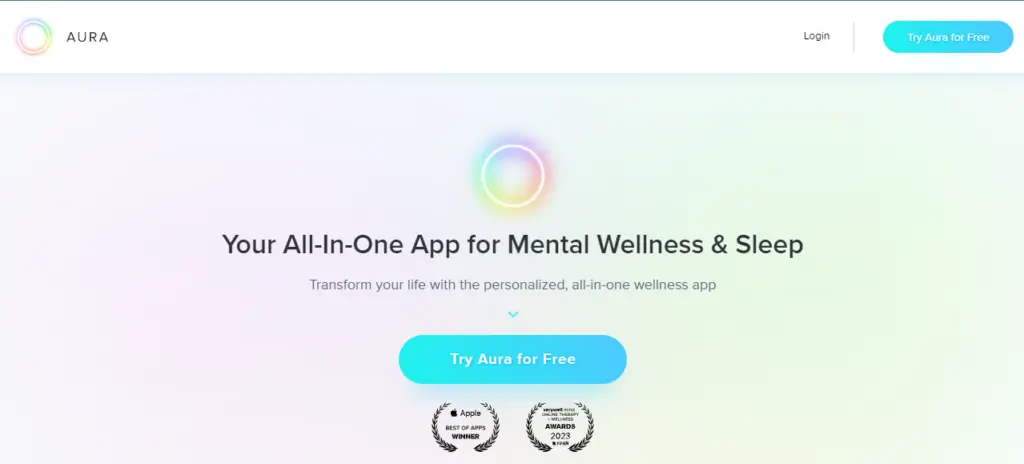
Aura excels in generating customized soundscapes. The app uses AI to create meditation music and calming sounds based on your preferences and mood, making it easier to relax. Whether you’re looking for nature sounds or calming melodies, Aura’s AI adapts the auditory experience to complement your meditation practice.
4. Virtual Reality (VR) Meditation: Zen in a Custom Environment

Struggling to find a quiet space to meditate? AI for meditation combined with virtual reality (VR) technology is here to help. Apps like Tripp VR offer immersive environments tailored to your preferences, creating a custom meditation experience whether you’re at home or on the go.
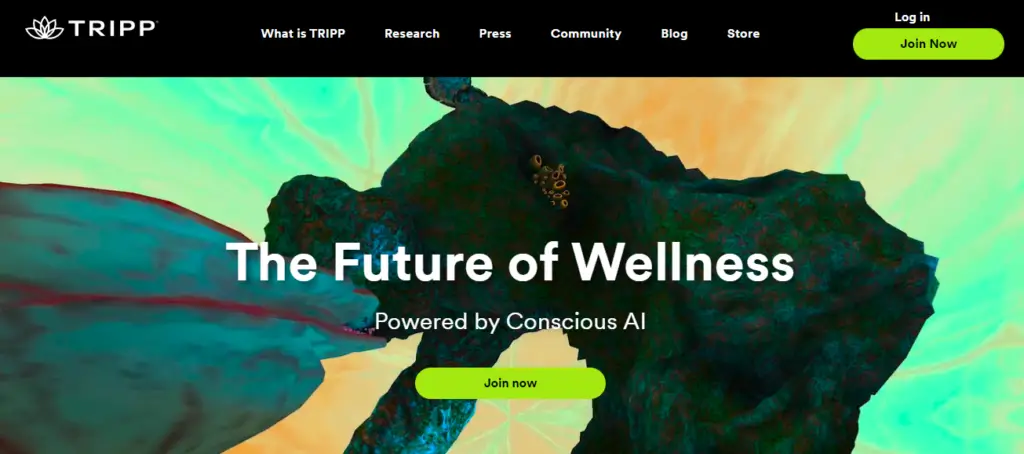
The AI adjusts the VR landscapes based on your progress, making it possible to meditate on serene beaches or lush forests—all from the comfort of your living room. These environments adapt to your emotional and mental state, helping you reach mindfulness faster and more effectively.
AI Apps for Meditation for Virtual Reality
While not purely an AI-driven VR app, Calm offers immersive experiences through calming visuals paired with its meditation content, bringing you closer to a tranquil environment without needing a VR headset. These virtual experiences, paired with AI customization, provide a more enriched meditation experience.
Although apps like Insight Timer don’t offer VR, they offer a wide range of customizable meditation content that can simulate peaceful environments using sound and imagery, allowing you to create your ideal meditation space.
5. AI-Powered Meditation Assistants: Your Mindfulness Coach on Call
AI meditation assistants are becoming invaluable tools for anyone seeking on-demand mindfulness support. These AI chatbots act as personal coaches, offering guided meditations, answering questions, and suggesting mindfulness techniques whenever you need them.
AI Apps for Meditation Assistants

Wysa is the leading AI meditation assistant on this list. This app provides emotional support and guided mindfulness exercises via an AI-powered chatbot. Whether you need a quick breathing exercise or a stress-relief chat, Wysa uses natural language processing to deliver real-time support tailored to your mental health needs. It feels like having a 24/7 mindfulness coach in your pocket.

Unmind also acts as a mindfulness and mental health companion, offering personalized mental well-being tools, but Wysa takes the crown for its highly interactive AI-based features.
6. Data-Driven Insights: Understand Your Meditation Progress
Data is key to understanding and improving any practice, and AI for meditation excels in tracking progress. Apps like Calm and Insight Timer use AI to monitor your meditation habits and provide valuable insights into your progress.
By analyzing data such as your frequency, duration, and techniques, these apps can offer personalized recommendations to help you optimize your practice. They even predict when you’re most likely to need meditation, sending timely reminders to keep you on track.
AI Apps for Meditation Progress
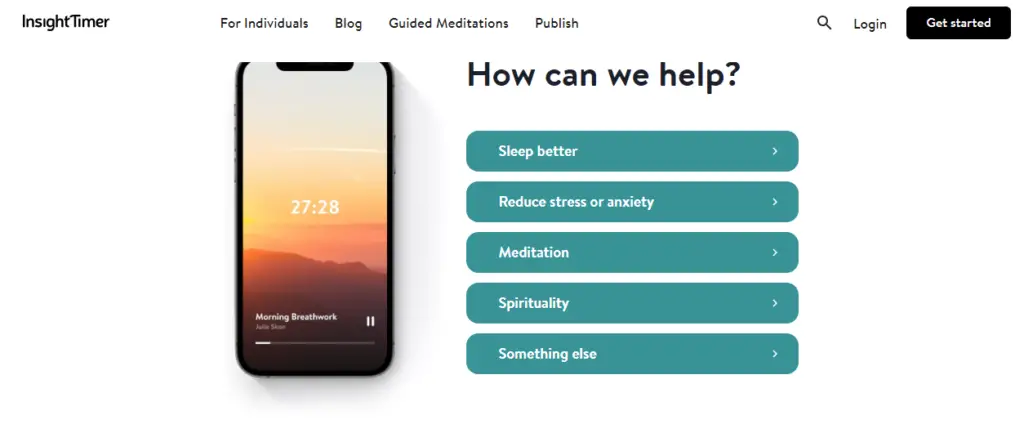
Both Insight Timer and Calm use AI to track your meditation habits over time, offering data-driven insights. These apps analyze your meditation sessions and provide feedback on how you’re improving, allowing you to set goals and monitor your mental health journey. They also use data to recommend techniques and sessions based on your meditation history, ensuring continued progress.
Unmind offers a similar feature with more focus on workplace mental well-being, allowing users to monitor their stress levels and receive AI-generated insights into how meditation can improve their focus and emotional state.
7. Smart Meditation Spaces: AI-Optimized Environments for Relaxation
Finally, AI for meditation is making its way into our physical environments. Imagine walking into a room where the lighting, temperature, and even sounds automatically adjust to create the perfect setting for your meditation session.
AI Apps for Meditation Spaces
While none of these apps directly create AI-optimized meditation spaces, many, like Calm, offer soothing ambient sounds and lighting suggestions that can be paired with smart home technology to create the ideal meditation environment. By integrating Calm or Headspace with smart speakers and lighting systems, you can create a smart meditation space that adjusts based on your preferences.
Conclusion:
The rise of AI for meditation is enhancing traditional mindfulness practices, making them more personalized and accessible than ever. From customized guided meditations to real-time biofeedback and immersive VR environments, AI is changing how we meditate and approach mental well-being.
Whether you’re looking to deepen your practice or just start your meditation journey, AI tools offer endless possibilities to help you achieve mindfulness and inner peace. As these technologies evolve, expect even more innovative ways to connect with yourself and achieve your mental health goals.
Ready to experience AI for meditation? Embrace the fusion of ancient wisdom and modern technology, and see how it can transform your life today.
10 FAQs for AI for Meditation
1. What is AI for Meditation?
AI for Meditation refers to the use of artificial intelligence technology to enhance meditation practices. AI-powered apps and tools provide personalized guided meditations, biofeedback, and data-driven insights to improve the meditation experience, making it more effective and accessible.
2. How does AI personalize meditation sessions?
AI uses algorithms that analyze your meditation habits, stress levels, moods, and preferences. It then tailors sessions to suit your current emotional or mental state, offering guided meditations, soundscapes, or breathing exercises specifically designed to meet your unique needs.
3. Can AI really help improve my meditation practice?
Yes! AI enhances meditation by providing real-time feedback, such as biofeedback from sensors or personalized insights based on your meditation history. This helps you deepen your practice, stay focused, and achieve relaxation or mindfulness more effectively.
4. What are AI-powered biofeedback meditation devices?
Biofeedback meditation devices, like the Muse headband, use sensors to monitor your brainwave activity, heart rate, or breathing patterns. AI analyzes this data in real time, adjusting sounds or providing feedback to help you relax or focus during meditation.
5. Are AI-guided meditations better than traditional ones?
Both AI-guided and traditional meditations have their advantages. AI-guided meditations offer personalization, real-time adjustments, and insights based on your practice, while traditional sessions may follow a more fixed structure. AI-guided meditations can be more dynamic and adaptable.
6. Can AI help with mindfulness beyond meditation?
Yes, AI tools like Wysa or Unmind also offer mindfulness exercises, emotional support, and mental health insights. These AI-powered platforms can guide users through mindfulness techniques, helping with stress, anxiety, and emotional well-being even outside formal meditation.
7. Which are the best AI apps for meditation?
Some of the top AI meditation apps include Headspace, Calm, Insight Timer, Wysa, Aura, Unmind, Moodfit, and Ten Percent Happier. These apps use AI to personalize meditations, track progress, and provide real-time feedback for a more tailored experience.
8. Is it safe to use AI for meditation?
Yes, AI-based meditation tools are generally safe. Most apps and devices use non-invasive techniques like data tracking or biofeedback to enhance your meditation experience. Always ensure you’re using trusted apps with clear privacy policies, especially when sharing personal data.
9. How does AI create meditation music or soundscapes?
AI-generated meditation music or soundscapes are created by analyzing your brainwave activity or mood. Apps like Brain.fm and Aura use AI to compose custom soundscapes that help you relax or focus, adjusting the music in real-time to match your state of mind during meditation.
10. Can beginners use AI for meditation?
Absolutely! Many AI-powered meditation apps are beginner-friendly and offer step-by-step guidance. AI can make meditation more accessible by providing easy-to-follow instructions, real-time feedback, and personalized suggestions, which can help new meditators establish a consistent practice.
